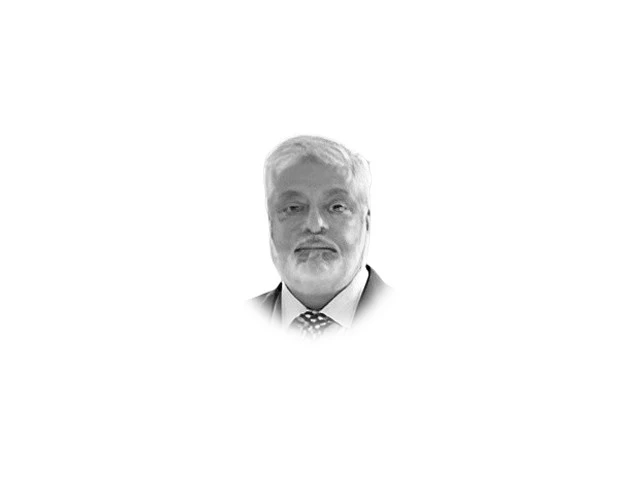The shifting poles
As the old world order fractures, Pakistan must chart a pragmatic course amid the rise of a multipolar Asia

Since the rise of nation states, humanity has witnessed a world divided along ethnic, civilisational and racial lines. Yet, the 20th century marked a profound transformation; following the two devastating World Wars, global alignments began to coalesce around two expansive ideological poles of Capitalism and Socialism. These opposing visions of political and economic order soon crystalised into the Cold War - a tense and enduring confrontation that defined much of the century until the dissolution of Soviet Union in 1989.
The emergence of unipolar world under the global leadership of the United States of America initially inspired great optimism for a sustained era of peace and stability. It was envisioned as a period marked by shared democratic values, adherence to international laws, free trade, respect for sovereignty and the universal advancement of human rights. Nevertheless, the reality that followed fell far short of these ideals, leaving much of the world disillusioned by the promises that remained unfulfilled.
The dawn of 21st century witnessed the rise of China as a formidable global economic and military power, fundamentally challenging the unipolar dominance of the United States. Twenty-five years on, China today stands as the world's second largest but fastest growing economy and a formidable global military power. If we look closely, new lines of alignment and competition are visibly emerging on the global horizon, signaling a gradual yet undeniable shift toward a multipolar world order. However, the unravelling of the old order does not appear to be in harmony with the contours of the emerging one.
On one hand, there is an increasing disregard for multilateral institutions and a growing erosion of respect for international laws, norms and standards. On the other, the multipolarity is taking shape not through truly global cooperation, but rather through regional or 'mini lateral' groupings such as the SCO, QUAD, SQUAD, AUKUS, I2U2 and BRICS, each reflecting selective interests rather than universal consensus. The question, therefore, arises: has the emerging world order failed to crystalise, or is it simply passing through a transformative phase?
As the political, economic, technological and ethnic confrontations intensify, the developing and middle order nations seem increasingly disenchanted, turning inward to safeguard their own interests. If the world transforms into a multipolar order, will it unite values, resist hegemony and encourage balanced reciprocity or will it, instead, fragment the global landscape into competing centres of power, leaving the world adrift in uncertainty?
These are the questions that echo across every corridor of global thought today. Given the growing complexity of global geopolitics and the supersonic pace of unfolding events, it has become increasingly difficult to logically define the emerging trends or make well-grounded predictions about the future world order. Yet, amid this prevailing uncertainty, one undeniable reality stands out and that is the rise of Asia as a dynamic economic, technological and political center of gravity. This emerging alternative order is rapidly gaining traction across the Global South, posing a serious challenge to the West-led visibly hegemonic discourse and signaling a profound rebalancing of global powers.
The expanding membership of BRICS, along with growing list of aspiring candidates, reflects a significant shift in the global balance of influence. Erosion of international consensus behind US positions in institutions like the UNSC marks another telling sign of the changing global trends. Parallel to this, the emergence of alternatives to West-dominated financial infrastructure like SWIFT with CIPS (China Cross Border Interbank Payment System) and various blockchain-based networks like Ripple Net and the XRP Ledger illustrates a move towards faster, cheaper and more independent financial transactions - a step too giant towards alternating the existing economic order.
At present, the term 'global or regional power' is largely defined by a nation's capacity to appear as a Global or Regional Hegemon through military power projection and enforced geopolitical coercion/dominance over smaller and comparatively weaker states. If the emerging multipolar world continues to interpret power within these narrow, militarised parameters, the international community may well be heading towards new multiple global crises spread over all regions and subregions, or perhaps at least a renewed Cold War 2.0.
However, if reason and foresight prevail, and the evolving order embraces a more balanced, inclusive and equitable approach to nations' development, it may create the space needed to confront humanity's most pressing challenges, climate change, growing food and energy demands, water scarcity and, above all, the eradication of global inequality and poverty alleviation.
What, then, should developing and struggling nations like Pakistan do in the existing global environment? Should they remain committed to the waning unipolar order, align themselves with emerging blocs or attempt to balance cautiously between both until circumstances compel a final choice?
The answers, in my view, rest upon our capacity to make informed and reasoned assessment of the changing global trends. It is often said that the mark of an educated mind lies in its ability to make a sound, reasoned guess. Applying that principle to our national context, logic rooted in geopolitical realities, geographical proximity and demographic affinities suggests that our future may be better secured by maintaining a natural tilt towards the evolving order emerging from the East.
Above all, our national focus must remain firmly anchored in safeguarding our security and advancing our economic development, while all other considerations - however significant - should be treated as secondary to these paramount objectives.
















COMMENTS
Comments are moderated and generally will be posted if they are on-topic and not abusive.
For more information, please see our Comments FAQ